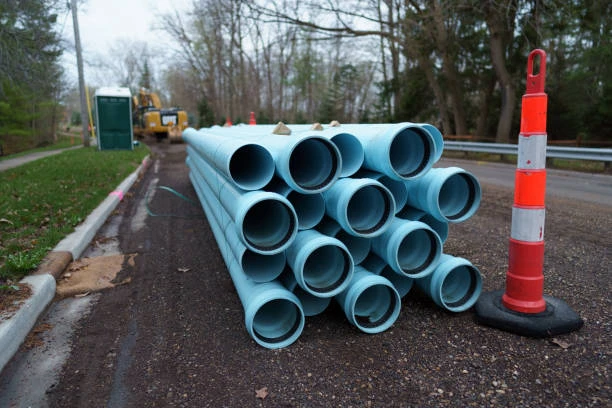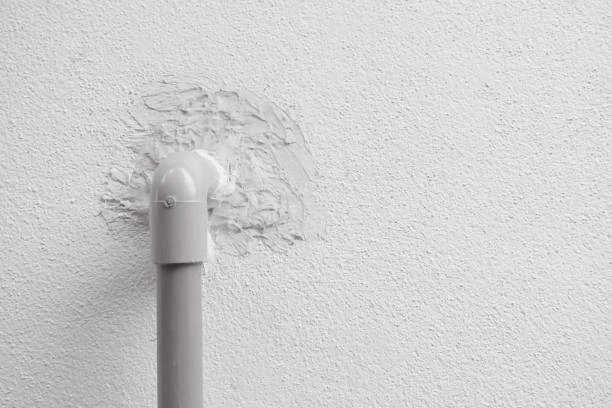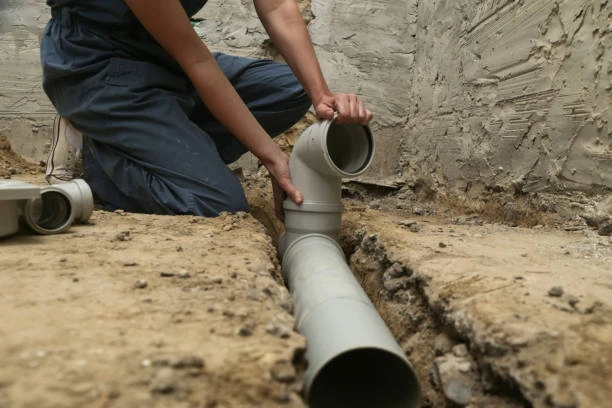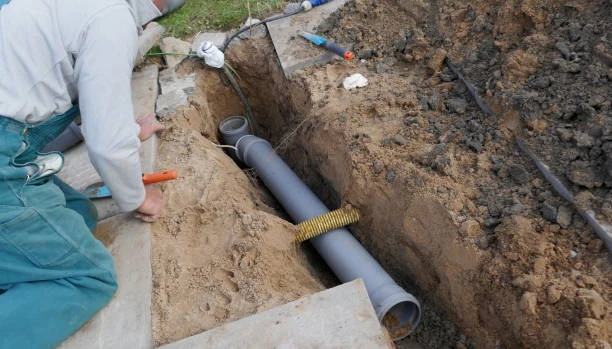Introduction: Understanding the Benefits of Plastic Pipes
The Plastics Industry Pipe Association (PIPA) has consistently advocated for the use of plastic pipes due to their numerous advantages in a wide range of applications. From residential plumbing to large-scale industrial systems, plastic pipes have become the material of choice for many sectors. PIPA’s recent emphasis on the benefits of plastic pipes aims to highlight the importance of this versatile material in today’s infrastructure. In this article, we explore why plastic pipes are favored for water, gas, and sewage systems, focusing on their durability, cost-effectiveness, and environmental benefits.
What Are Plastic Pipes and Why Are They Used?
Plastic pipes are made from polymer materials such as polyethylene (PE), polyvinyl chloride (PVC), and polypropylene (PP). These materials offer unique properties that make plastic pipes ideal for various applications, especially in construction and infrastructure projects. They are used in water distribution, sewer systems, and gas pipelines, among other utilities.
Key Features of Plastic Pipes
- Lightweight: Plastic pipes are significantly lighter than their metal counterparts, making them easier to transport and install.
- Durable: Plastic pipes are resistant to corrosion, chemical damage, and wear over time.
- Flexible: Plastic pipes are more flexible than traditional materials, allowing them to bend and adapt to different landscapes.
- Cost-Effective: Plastic pipes generally cost less than metal pipes, making them an attractive option for budget-conscious projects.
The diverse applications and growing demand for plastic pipes have made them an essential part of modern infrastructure.
Durability and Longevity of Plastic Pipes
One of the most significant benefits of plastic pipes is their exceptional durability. Unlike metal pipes, plastic pipes are not prone to rust, corrosion, or scaling. This makes them ideal for both residential and commercial applications, especially in areas with harsh environmental conditions.
Resistance to Corrosion
Plastic pipes are resistant to corrosion caused by water, soil, and chemicals, which is a common issue for metal pipes. The inability of plastic to corrode ensures a longer lifespan for pipes, reducing the need for costly repairs and replacements.
Key Benefits of Corrosion Resistance:
- Longevity: Plastic pipes can last for 50 to 100 years, depending on the type of plastic used and the application.
- Reduced Maintenance: With no corrosion, plastic pipes require less frequent maintenance, saving money in the long run.
- Improved Reliability: Their resistance to environmental elements makes plastic pipes reliable for both domestic and industrial use.
Impact of Durability on Infrastructure
The long lifespan of plastic pipes makes them an excellent choice for infrastructure projects that require reliable, long-term solutions. From residential water supply systems to large sewage and gas pipelines, plastic pipes offer low maintenance and reduced repair costs, contributing to more efficient and cost-effective operations over time.
Environmental Benefits of Plastic Pipes
Plastic pipes are widely regarded for their environmental benefits. In an era where sustainability is a priority, the use of plastic pipes contributes to the reduction of environmental impact in several ways. PIPA emphasizes these advantages, making plastic pipes an eco-friendly option for infrastructure projects.
Energy Efficiency During Production and Transportation
The production of plastic pipes requires less energy compared to metal pipes, which involve energy-intensive processes such as smelting and refining. This energy efficiency reduces the carbon footprint associated with manufacturing, making plastic pipes a more sustainable option.
Lower Carbon Emissions:
- Less Energy Use: The production of plastic pipes uses fewer resources and less energy than traditional metal pipes.
- Reduced Transportation Costs: Plastic pipes are lighter than metal pipes, reducing fuel consumption during transportation and lowering carbon emissions.
Recyclability of Plastic Pipes
Plastic pipes are highly recyclable, contributing to a circular economy where materials are reused and repurposed. While not all plastic pipes are recyclable, advancements in recycling technologies make it possible to recycle polyethylene and PVC pipes at the end of their useful life.
Sustainable Disposal:
- Recycling Programs: Increasing efforts are being made to recycle plastic pipes, reducing waste in landfills.
- Less Environmental Impact: Compared to non-recyclable materials, plastic pipes are less likely to contribute to environmental pollution when properly disposed of.
Minimizing Resource Use
Plastic pipes help minimize the use of raw resources like metals and other materials, which are often sourced through mining. Using plastic reduces the strain on natural resources, contributing to more sustainable building practices.
Cost-Effectiveness of Plastic Pipes
Another significant advantage of plastic pipes is their cost-effectiveness. Not only are plastic pipes cheaper to manufacture than metal pipes, but they also offer long-term savings in terms of installation and maintenance.
Lower Initial Cost
Plastic pipes are generally much less expensive to purchase than metal pipes. Their lower initial cost can make them a more affordable option for large-scale infrastructure projects, especially in developing regions or for projects with tight budgets.
Why Plastic Pipes Are More Affordable:
- Lower Material Costs: Plastic materials are less expensive to produce than metals like copper or steel.
- Ease of Installation: Plastic pipes are lighter and easier to handle, reducing labor costs during installation.
Reduced Installation Costs
The ease of installation is another factor that makes plastic pipes cost-effective. Plastic pipes are lightweight, easy to cut, and require fewer special tools for installation. This reduces the overall labor costs for installation, making them an attractive option for contractors and project managers.
Benefits of Easy Installation:
- Faster Installation: Plastic pipes can be installed quickly, minimizing downtime and project delays.
- Less Specialized Labor: The installation of plastic pipes requires less specialized labor compared to metal pipes.
Lower Maintenance and Replacement Costs
As mentioned earlier, plastic pipes require less maintenance and are more durable than metal pipes. This longevity means that they are less likely to break, leak, or corrode, reducing the need for costly repairs or replacements over time. This results in significant savings for property owners and utility companies.

Flexibility and Versatility in Application
Plastic pipes are highly versatile, able to serve in a variety of environments and applications. Their flexibility allows them to be used in diverse settings, from domestic plumbing systems to large industrial pipelines.
Wide Range of Applications
Plastic pipes are used in residential, commercial, and industrial applications, such as:
- Water Distribution: Used in both potable and non-potable water systems.
- Gas Pipelines: Employed in natural gas and propane systems for their resistance to corrosion.
- Sewage and Wastewater Systems: Plastic pipes are used extensively in municipal sewage systems and wastewater treatment plants.
Adaptability to Different Environments
The flexibility of plastic pipes makes them adaptable to various environmental conditions. They can bend around obstacles and adjust to landscape changes without the need for joints or connectors, making them ideal for underground installations and challenging terrains.
Safety and Health Benefits of Plastic Pipes
In addition to their practical benefits, plastic pipes also contribute to safety and health in several ways. They are less likely to be damaged by external forces, which helps prevent leaks and hazardous situations.
Non-Toxicity and Water Quality
Plastic pipes, especially those made from materials like PVC and PE, are non-toxic and safe for carrying potable water. Unlike metal pipes, which can corrode over time and affect water quality, plastic pipes help maintain the purity of drinking water.
Health and Safety Benefits:
- No Leaching: Plastic pipes do not leach harmful substances into water, ensuring safe drinking water.
- Resistant to Contamination: Plastic’s non-corrosive nature helps prevent the build-up of harmful bacteria and toxins.
Reduced Risk of Leaks
Plastic pipes are also less likely to develop leaks or cracks under pressure, unlike metal pipes, which can corrode or suffer from rust over time. This reduces the risk of water contamination or costly property damage due to pipe failures.
Conclusion: The Clear Benefits of Plastic Pipes
The advantages of plastic pipes are clear, and PIPA’s emphasis on these benefits further solidifies their importance in modern infrastructure. With their durability, cost-effectiveness, environmental benefits, and versatility, plastic pipes have become the preferred material for a variety of applications, including water, gas, and sewage systems. As the world continues to invest in sustainable infrastructure solutions, plastic pipes will play an increasingly important role in shaping the future of the construction and utility industries.
By choosing plastic pipes, industries can reduce costs, improve efficiency, and contribute to sustainability—all while maintaining high standards of safety and reliability.
Frequently Asked Questions (FAQs)
- What are the main benefits of using plastic pipes?
Plastic pipes are durable, cost-effective, flexible, resistant to corrosion, and environmentally friendly. They also have a longer lifespan than metal pipes. - Are plastic pipes safe for carrying drinking water?
Yes, plastic pipes, such as those made from PVC or PE, are non-toxic and safe for transporting potable water. - How do plastic pipes help with environmental sustainability?
Plastic pipes are energy-efficient to produce, lightweight for transportation, and recyclable, reducing environmental impact compared to metal pipes. - What types of plastic pipes are commonly used in infrastructure?
The most commonly used types are polyethylene (PE), polyvinyl chloride (PVC), and polypropylene (PP), each offering unique benefits for various applications. - Do plastic pipes require a lot of maintenance?
No, plastic pipes are low-maintenance due to their resistance to corrosion and long lifespan, making them a cost-effective choice over time.


















